Denemek ALTIN - Özgür
A Curious Mind
Australian Geographic Magazine
|January-February 2024
Could this brilliant South Australian physicist be Australia's next Nobel Prize winner?

Matthew Bailes returns to the road in suburban Adelaide where, as a six year-old, he first asked the questions that led to his "stellar" career in astrophysics.
SIX-YEAR-OLD MATTHEW BAILES waits on the edge of Adelaide’s Glynburn Road for a gap in the busy traffic. He sees an oncoming car and wonders why he can see it. Later he asks his parents, “Why can we see cars? Why can we see anything?” – deceptively simple questions that his parents’ high-school education hadn’t equipped them to answer. “It just made me wonder how the universe worked,” he now explains simply.
About a billion years before that suburban Adelaide scene, in a galaxy far, far away, a cataclysmic event occurs, releasing an unimaginably powerful burst of energy. It’s gone in the blink of an eye, but sends a blast of radiation that ripples out through the vast, cold vacuum of space. At some point in its billions-of-light-years journey, this wave washes over a small blue planet in one arm of a spiral galaxy, and its radio shriek is picked up by an antenna on a dry red continent. Yet again, Matthew Bailes – now working as an astrophysicist at Melbourne’s Swinburne University of Technology – finds himself asking, “Why can we see this?”
The answer was so astounding, its cosmological implications so profound, that Matthew and his colleagues are now being whispered about as contenders for a Nobel Prize in Physics.
Bu hikaye Australian Geographic Magazine dergisinin January-February 2024 baskısından alınmıştır.
Binlerce özenle seçilmiş premium hikayeye ve 9.000'den fazla dergi ve gazeteye erişmek için Magzter GOLD'a abone olun.
Zaten abone misiniz? Oturum aç
Australian Geographic Magazine'den DAHA FAZLA HİKAYE
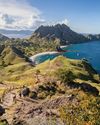
Australian Geographic Magazine
SULAWESI SENSATIONS
There are worlds within worlds and marvels untold waiting to be experienced on Indonesia's remote islands.
9 mins
September-October 2024
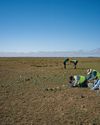
Australian Geographic Magazine
SEARCHING FOR AUSSIE DINOSAURS
Our understanding of where to find ancient life in Australia has been turned on its head by a new appreciation of the country's geology. Now the world is looking to our vast outback as the latest hotspot to locate fossils.
18 mins
September-October 2024
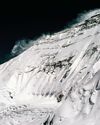
Australian Geographic Magazine
THE HARDEST NIGHT
The first Australian ascent of Mt Everest in 1984 is one of the great feats of mountaineering. Climbed by a small team semi-alpine style, with no bottled oxygen, via the Great (Norton) Couloir, it remains unrepeated 40 years later.
14 mins
September-October 2024
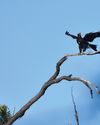
Australian Geographic Magazine
WEDGE-TAILED WONDER
The chance discovery of an eagle nest leads to an extended vigil observing normally hidden behaviours of one of nature's supreme winged marvels.
3 mins
September-October 2024
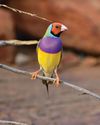
Australian Geographic Magazine
BURDENED BY BEAUTY
Northern Australia's Gouldian finch survives in huge numbers in cages around the world, but its wild population continues to struggle.
4 mins
September-October 2024
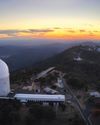
Australian Geographic Magazine
A TELESCOPE FOR A GOLDEN AGE
After a stellar 50 years as one of the country's major scientific assets, the AAT continues to play a major role in keeping Australian astronomy on the world stage.
7 mins
September-October 2024
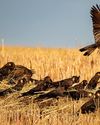
Australian Geographic Magazine
COCKY WHISPERING AT COOMALLO CREEK
This patch of remnant bush on the edge of the West Australian wheatbelt is a place loved by one of Australia's rarest bird species and the man who has studied the site for more than 50 years.
6 mins
September-October 2024

Australian Geographic Magazine
A PIONEERING PAIR
Louisa Atkinson and her mother, Charlotte, were among Australia's earliest authors, and pioneers in women's rights.
9 mins
September-October 2024
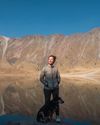
Australian Geographic Magazine
THE LONGEST WALK
Lucy Barnard is walking from Argentina to Alaska -the length of the Americas - on an extraordinary journey of endurance and adventure.
6 mins
September-October 2024
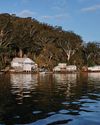
Australian Geographic Magazine
SECLUDED, BUT NOT ALONE
In an era of heightened social isolation, where many of us lead lonely lives, Dangar Island offers the chance to be part of a supportive, connected community.
7 mins
September-October 2024
Translate
Change font size
